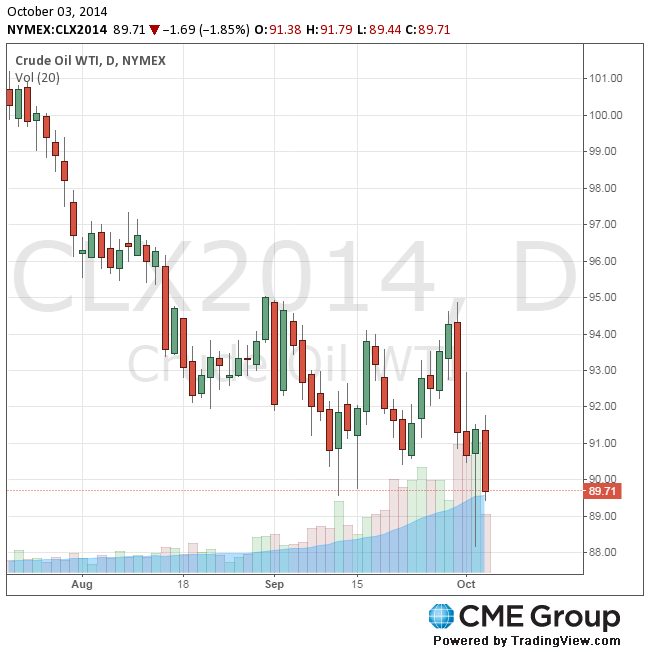- Brent crude headed for a bear market
Notícias do Mercado
Brent crude headed for a bear market
Brent crude headed for a bear market on speculation rising global supplies will be more than enough to meet slowing demand.
Prices fell for a fourth day after closing almost 20 percent below their June peak yesterday, a common definition of a bear market. OPEC September oil production rose to a one-year high and Saudi Arabia cut prices this week. U.S. output is near the highest since 1986. The Brent-West Texas Intermediate spread earlier shrank as a government report showed U.S. non-farm payrolls rose more than expected last month.
"Supply is plentiful and demand is not keeping up with supply now," said Tariq Zahir, a New York-based commodity fund manager at Tyche Capital Advisors. "That's the fundamental equation and it looks more likely that we'll continue to go lower."
Brent for November settlement slipped $1.42, or 1.5 percent, to $92 a barrel at 10:35 a.m. New York time on the London-based ICE Futures Europe exchange. The volume of all futures traded was about 16 percent above the 100-day average. Prices have decreased 5.2 percent this week.
West Texas Intermediate crude for November delivery fell $1.14, or 1.3 percent, to $89.87 a barrel on the New York Mercantile Exchange. It traded below $90 yesterday for the first time since April 2013. Prices have slipped 3.9 percent this week. The U.S. benchmark earlier fell to a discount of as little as $1.51 to Brent on ICE, the smallest gap since August 2013, before widening out.
